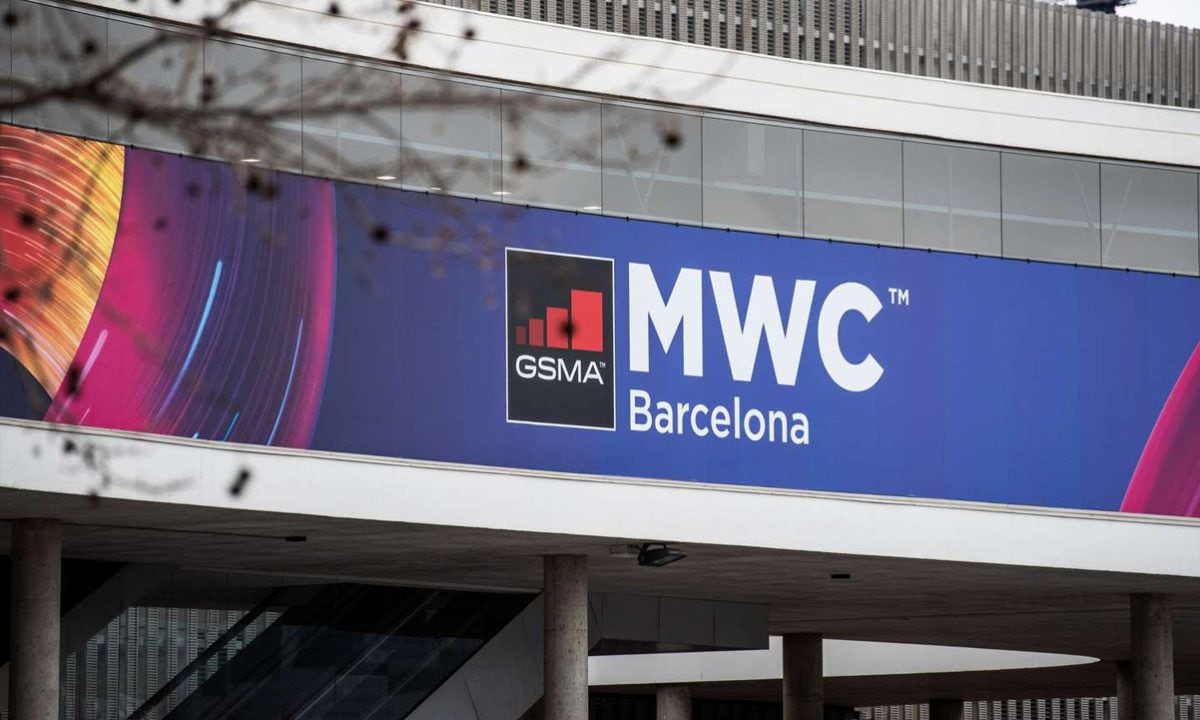
The Mobile World Congress (MWC), a key event for the new technology sector, kicks off on Monday in Barcelona with an edition that the organizers hope will be very close to those before the pandemic, although now colored by uncertainty about the war in Ukraine.
The canceled appointment of 2020 and the reduced version of 2021 have been left behind: the 16th edition of the MWC -which will be held from February 28 to March 3- will mean the return to Spain of “the entire ecosystem” of mobile telephony, as promised by the Association of Telecommunications Operators (GSMA), organizer of the event.
The MWC pavilions expect to receive between 40,000 and 60,000 visitors, in addition to 1,500 exhibitors, who will land in Barcelona in full uncertainty due to the conflict unleashed in Ukraine, and which has already had its first consequences on the show.
In a statement, the organizers said to condemn “forcefully the Russian invasion of Ukraine”, in addition to fulfilling “with all the sanctions and government policies derived from this situation”. Thus, “there will be no Russian pavilion at MWC22″, the GSMA added.
This space was to host a dozen companies from this country, which for the time being will be able to attend the event, but without having their own pavilion.
‘Connectivity Unleashed’
Two years ago, a few weeks after the pandemic exploded in Europe, the congress was canceled at the last minute after a trickle of cancellations from large firms in the sector.
Last year there was a room, but in June and in a hybrid format due to health restrictions: only 20,000 participants attended the event, compared to almost 100,000 in normal times.
Although this amount will not be reached this year, 95% of the speakers will be physically present, according to the GSMA director general, Mats Granryd, who considered this return to normality as “important” for the mobile phone industry.
In recent weeks, several prominent names in the sector have announced, however, that they will not attend Barcelona, such as the Japanese Sony -already absent last year-, the Taiwanese Asus or the Chinese Lenovo, which will only participate virtually.
Those who will be are the world leader in smartphones Samsung or other major players such as Nokia, Ericsson, Google, Cisco, Huawei or Verizon. There will also be companies like Fujitsu that will make their debut this year in Barcelona.
The organizers expect about a thousand speakers, including the head of Nokia, Pekka Lundmark, the general director of Vodafone, Nick Read, or the executive director of AT&T, Anne Chow. In addition, some fifty ministers have confirmed their presence.
Under the motto “connectivity unleashed”, this edition will address topics ranging from the rise of 5G to the opportunities offered by the Internet of Things (IoT), passing through the metaverse and the impact of new technologies on the environment.
However, the major producers are not expected to unveil new creations, although some innovations will be presented, especially in the field of cameras and telephone batteries.
Geopolitics
Beyond the ‘gadgets’, “it will be interesting to see how manufacturers position themselves” in the smartphone market, especially against the “Huawei difficulties”, which has lost momentum due to the sanctions imposed by the United States, according to Thomas Husson, an analyst at Forrester.
The question of the sanctions imposed on Moscow after the invasion of Ukraine will be another issue that will be closely followed. Washington has already decided to limit technology exports to Russia, which could add further strain to a sector already struggling with a chip shortage.
“It is unlikely that the market for smartphones and other smart products will not be affected by the impact of the crisis in Ukraine, considering the economic and geographical importance of Russia and Ukraine”, valued Marina Koytcheva, from the CCS cabinet.
Both countries “are major global suppliers of raw materials used in the manufacture of components”, like neon and palladium, recalls the analyst, which could have consequences on supply chains and production.
Despite the slowdown in recent years, the smartphone market grew by 5.7% in 2021, when 1.35 billion devices were sold worldwide, according to the IDC cabinet. Since the summer, however, the sector has been suffering from these shortage problems, which have weighed on its fourth quarter results.
Source: Gestion
Ricardo is a renowned author and journalist, known for his exceptional writing on top-news stories. He currently works as a writer at the 247 News Agency, where he is known for his ability to deliver breaking news and insightful analysis on the most pressing issues of the day.











